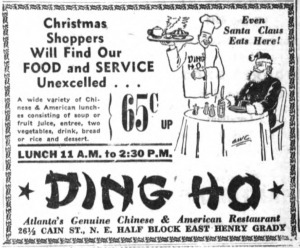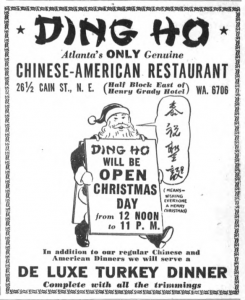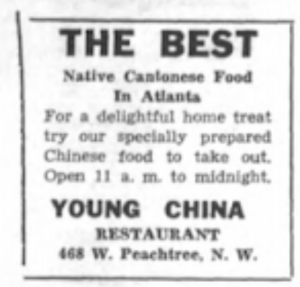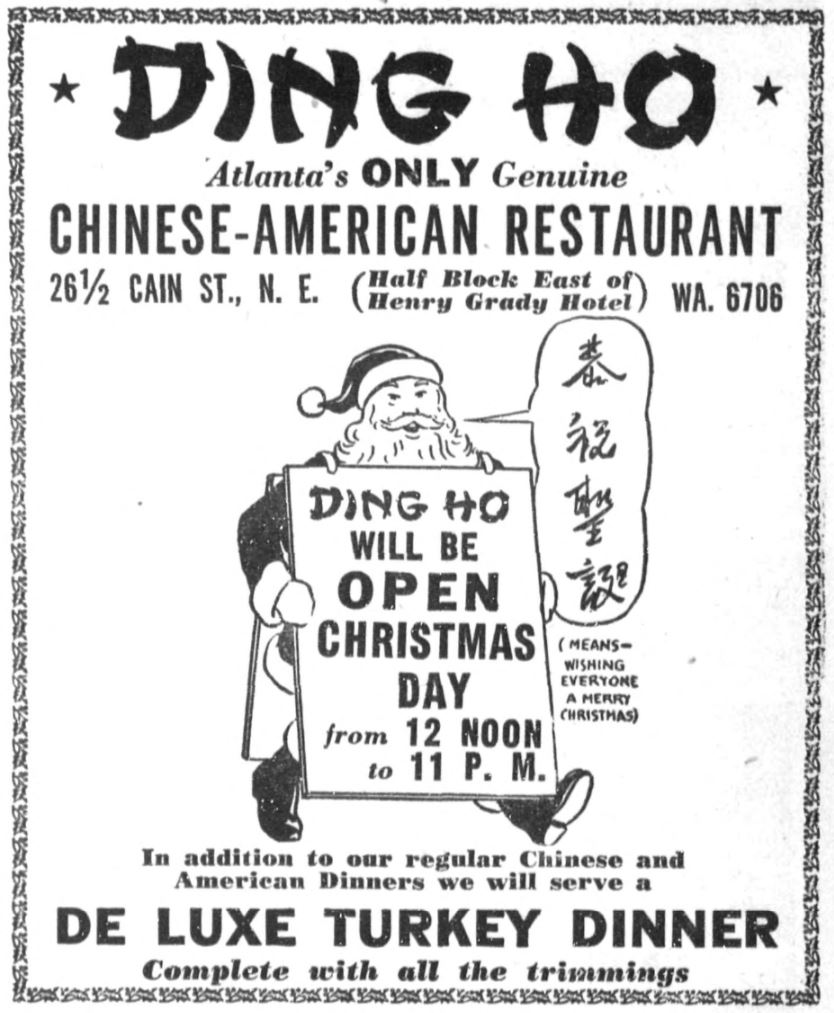
Newspapers have always been one of my favorite sources of work, and the DLG Georgia Historic Newspapers collection is one of my favorite sources of full-text searchable newspapers to use for this type of research. There are many different approaches to examining newspapers, but one that you may find useful is finding global connections in local sources. One global thread that interests me is how diverse foodways are introduced to new communities. Marketing methods tell us how customers were enticed to try food that may be new to them.

This marketing idea led to thinking about the special connection of the Jewish community to the Chinese culinary scene. The relationship between Jewish communities and Chinese food is particularly evident around the Christmas holidays. Yong Chen’s Chop Suey, USA, explores the topic of Chinese food in the United States and pays some attention to cultural connection centered around food between Jewish and Chinese communities. The Southern Israelite proved to be an excellent source to ask questions about how the Jewish community in Atlanta was sold on Chinese food.
While this project is still in its early stages, I have discovered a few interesting facets of the marketing of Chinese food to the Atlanta Jewish community. A few quick facts:
- From the 1930s to 1960s, I found twelve restaurants serving Chinese cuisine concentrated mostly in downtown Atlanta.
- During the early twentieth century, there was an attempt to market Chinese food as “authentic” either by highlighting the origins of the chefs or the type of food served.
- Many restaurants, as late as the 1960s, advertised both American and Chinese dishes. During the 1950s many restaurants began to emphasize their Chinese dishes over their American dishes.
- The first true “take-away” Chinese restaurant, Young China, did not appear in the Southern Israelite until the 1950s.
- The most prolific advertiser in the Southern Israelite was the restaurant Ding Ho which was open by Chinese-American Veteran Tom P. Wong in 1948.

There’s more research to be done, but thanks to the Georgia Historic Newspaper Project at the DLG, the ease of accessing resources like the Southern Israelite will allow for deeper discoveries that allow us to make global connections with a local context.
This project originated as a class project during this past semester in Dr. Ian Fletcher’s History 8490 at Georgia State University. In this course, we spent the term coming to an understanding of the importance of global history and how each student in the class might use elements of global history in their research and teaching. Students in this course decided to conduct a research project on food and global context in Atlanta.
The final map for the class was created by Curt Jackson and is available here:
–Joshua Kitchens
Director, Archival Studies Program
Clayton State University


